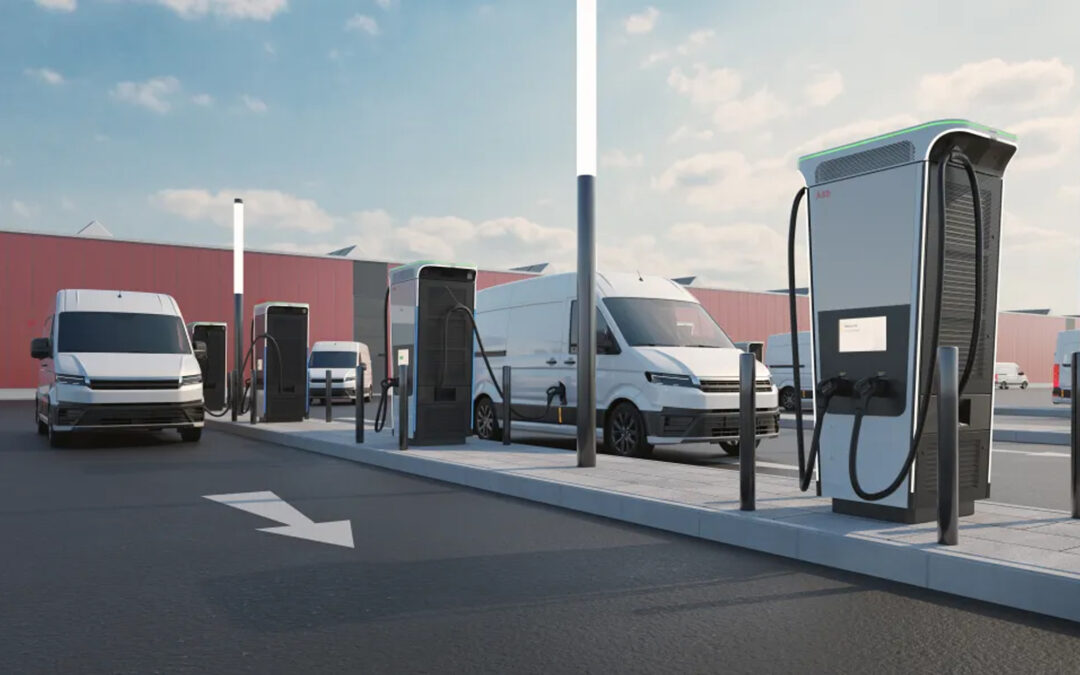Transitioning to an electric vehicle (EV) fleet is more than just a trend—it’s a strategic move that offers a wide range of benefits for businesses. From substantial cost savings to a reduced environmental footprint, adopting an electric fleet can transform your operations while positioning your company as a leader in sustainability. As EV technology advances, businesses have the opportunity to make the switch and reap the rewards of going electric.
In this blog, we’ll cover why your business should consider switching to electric vehicles, the practicalities of charging infrastructure, and how to navigate the financial and logistical aspects of the transition with ease!
7 Advantages of Switching to an Electric Vehicle Fleet for Your Operations
Transitioning to an electric vehicle fleet offers a wide range of benefits. Let’s run through the following aspects:
Enhanced Fleet Performance and Innovation
Switching to electric vehicles brings innovation and cutting-edge technology into your fleet. With advancements in battery life, software, and performance optimization, electric vehicles can outperform traditional internal combustion engine vehicles in several key areas.
- Instant Torque and Smooth Acceleration: EVs deliver instant torque, providing smoother and faster acceleration than conventional vehicles. This translates to better overall fleet performance, especially in stop-and-go traffic situations.
- Advanced Connectivity and Fleet Management: Many EVs come equipped with advanced telematics systems that allow businesses to monitor fleet performance in real time. Through the integration of smart fleet management systems, you can track energy consumption, predict maintenance needs, and optimize routes.
Reducing Noise
Electric vehicles operate much more quietly than their gas-powered counterparts, leading to less noise disruption in urban areas or residential neighborhoods.
- Improving Employee and Customer Experience: Whether it’s reducing noise in delivery zones or creating a quieter work environment for employees, electric fleets’ reduced sound profile can offer a more pleasant experience for everyone. This benefit is especially noticeable in densely populated areas or fleets operating during early or late hours.
Energy Independence and Flexibility
Electric vehicles give businesses more control over energy sourcing compared to relying on fluctuating oil and gasoline prices.
- Stabilizing Energy Costs: EVs allow businesses to tap into renewable energy sources, such as solar or wind, for charging. Over time, this can help insulate your fleet from volatile fuel prices and make energy expenses more predictable. Businesses may also benefit from charging vehicles during off-peak hours to save on electricity costs.
- Onsite Power Generation Options: Companies with large fleets can explore installing solar panels or other renewable energy solutions onsite to power their electric fleet. This reduces reliance on the grid and creates a more sustainable and cost-effective energy ecosystem for your business.
Resilient and Reliable in Extreme Conditions
Due to fewer mechanical issues and advanced battery heating technologies, electric vehicles are proving more reliable in extreme conditions, including cold weather and high-altitude environments.
- Improved Winter Performance: While traditional vehicles may suffer from performance issues in extreme cold, modern EVs with pre-conditioning features can regulate their battery temperature, ensuring optimal performance in freezing conditions. This results in fewer breakdowns and enhanced reliability for businesses operating in challenging climates.
- Better Handling in Traffic or Congested Urban Areas: Because EVs often feature regenerative braking and instant torque, they handle better in congested areas, making your fleet more efficient in urban deliveries or services where precision and timing are essential.
Government and Regulatory Advantages
Beyond financial incentives, adopting an electric vehicle fleet can offer regulatory advantages, particularly as cities and governments implement stricter environmental policies.
- Stay Ahead of Regulation Changes: Many governments are setting ambitious targets for reducing carbon emissions and incentivizing businesses to transition to electric fleets. By making the switch now, your business will be prepared to meet upcoming regulations and avoid penalties or restrictions associated with diesel or gasoline-powered fleets.
- Zero-Emission Zones and Priority Access: Several major cities around the world have introduced or are planning to introduce zero-emission zones (ZEZs) that restrict access to polluting vehicles. Electric fleets can continue operating without interruptions in these areas, ensuring business continuity and avoiding costly delays.
Employee Benefits and Attraction
Switching to an electric fleet can directly impact employee satisfaction and talent attraction by offering cutting-edge technology and a greener workplace.
- Attracting Sustainability-Minded Talent: More employees are looking to work for companies that align with their values. Having a green fleet showcases your commitment to sustainability, which can attract employees who are passionate about environmental causes.
- Offering EV Perks for Employees: If your company provides vehicles to employees or offers fleet services as part of your business model, switching to EVs can also include perks such as allowing employees to charge personal vehicles at work. This adds convenience for employees and encourages further adoption of EV technology within your workforce.
Building a Future-Proof Brand
Changing to electric vehicles positions your business for future growth and brands you as an industry leader that embraces innovation and sustainability.
- Future-Proofing Your Fleet: As more regions transition away from fossil fuels and technology advances, companies that have already embraced electric vehicles will be better positioned to adapt. By investing in EV infrastructure early on, your business can avoid scrambling to comply with new regulations or technology shifts.
- Sustainability as a Competitive Advantage: More customers, clients, and partners are prioritizing sustainability when choosing who to work with. Transitioning to an EV fleet helps strengthen your brand’s sustainability credentials and gives you a competitive advantage in industries where environmental responsibility matters.
Looking for a partner to handle the entire planning process for implementing EV infrastructure? Sit back and let Lonestar take control of the wheel.
Signs Your Business Needs To Pivot To Electric Vehicle Fleets
As the world shifts toward sustainability, recognizing when it’s time for your business to transition to an EV fleet can make all the difference. Here are signs it’s time to change:
- High Fuel Costs: If rising fuel expenses are cutting into profits, EVs offer long-term cost savings.
- Sustainability Goals: Your business prioritizes eco-friendly practices, and switching to EVs aligns with your green initiatives.
- Regulatory Pressure: Government regulations or incentives are pushing for cleaner transportation methods.
- Fleet Maintenance Issues: Frequent repairs or aging vehicles make EVs a cost-effective and reliable alternative.
Make the Transition To an Electric Vehicle Fleet With Lonestar Integrated Solutions at Your Side
Lonestar is here to connect you to the right resources and support, ensuring your switch to EVs is efficient and aligned with your business needs. With us by your side, your fleet will be ready to lead the charge into a greener future!

